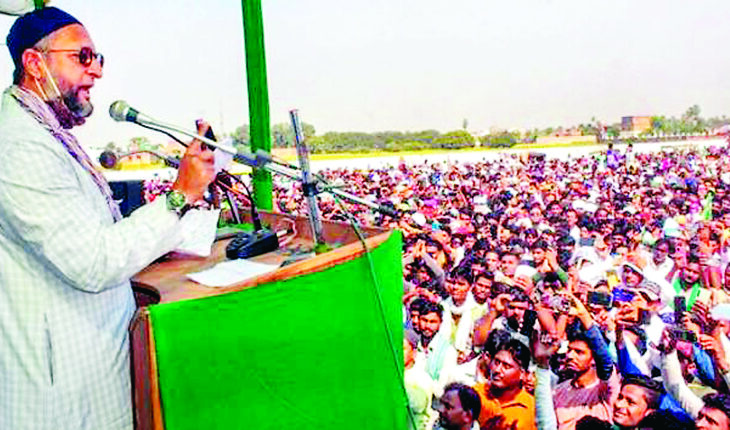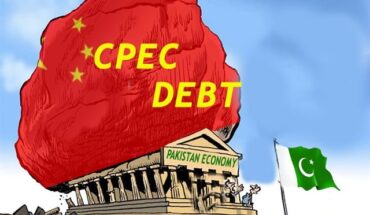Shaikh Mujibur Rehman explains why Owaisi has emerged as a prominent Muslim political leader
The modest success of the Asaduddin Owaisi-led All India Majlis-e- Ittehadul Muslimeen (AIMIM) in the recent Bihar Assembly elections has provoked a section of India’s secular intelligentsia to express deep concerns over India’s already tattered secular polity. The AIMIM’s future expansion, they argue, will deepen polarisation. One of them described Mr. Owaisi as the new Muhammad Ali Jinnah.
Mr. Owaisi is no Jinnah nor will he ever be. Historic figures like Jinnah or M.K. Gandhi are products of particular political moments. Such leaders shaped political developments as much as they got shaped by them. If Jinnah were present in the current theatre of Indian politics, he would have to play a different game. Though Jinnah and Mr. Owaisi are London-trained barristers, there is little in common between them. First, Mr. Owaisi is a dynast and the AIMIM is a family-run party. Like India’s mainstream politics, its Muslim politics is increasingly becoming dynastic. But Jinnah was a self-made man.
Second, Mr. Owaisi is a practising Muslim and wears his religion on his sleeve; whereas Jinnah was a Westernised man and an atheist like V.D. Savarkar. In 1940, Jinnah argued in his Presidential Address to the Muslim League at Lahore that Muslims are a separate nation, not a minority, and that Hindus and Muslims cannot live together. Little did he realise that even Muslims could not live together in his Pakistan as was made evident in 1971 when Bengali Muslims carved out Bangladesh. Mr. Owaisi has never argued for a separate homeland. Instead, he has argued for Muslim-Dalit unity and even forged an alliance with Prakash Ambedkar’s Vanchit Bahujan Aghadi in Maharashtra in 2019. Jinnah never recognised Dalit/ Pasmanda Muslims and barely expressed concern for Hindu Dalits.
By inventing an imaginary Muslim — disloyal, militant, hypersexual — the Hindu Right has unleashed a systematic campaign against Muslims since the 1920s. Its politics of polarisation has resulted in enormous electoral dividends since the late 1980s, and will continue to do so regardless of the AIMIM or Mr. Owaisi.
Take, for example, Gujarat. Owing to the politics of Gandhi, Gujarat was relatively unaffected during Partition by Hindu-Muslim violence. Muslim migration from Gujarat to Pakistan was insignificant. And yet, the Hindu Right was able to polarise that State vigorously from the late 1960s. Polarisation increased during the 1980s and further deepened from 2002 making Gujarat a model State for the politics of polarisation. The Hindu Right’s propaganda machine works tirelessly in its polarisation project by spreading rumours and false information. The law in Uttar Pradesh against forced conversion by marriage is its latest weapon.
Without doubt, Mr. Owaisi has emerged as a prominent Muslim political leader in Indian politics, a profile he has built up over the years with scintillating performances in Parliament and in television debates. His modest success in Bihar and Maharashtra only suggests that he has been able to convert the AIMIM into an election machine. In 2017, AIMIM failed to open an account in the Uttar Pradesh Assembly election. Even if it manages to open an account in Uttar Pradesh or West Bengal in the near future, the AIMIM is nowhere close to the Muslim League of the 1930s nor will it ever be, owing to the evolving complex interplay of forces of political economy and sociology of Muslims in various regions. The logic of contiguous areas of Muslim habitation in British India that helped Jinnah to use the Muslim League as a handy platform no longer exists.
These are some of the reasons why it would be almost impossible for Mr. Owaisi to become the sole spokesperson for the Indian Muslims.
Mr. Owaisi is no Jinnah nor will he ever be. Historic figures like Jinnah or M.K. Gandhi are products of particular political moments. Such leaders shaped political developments as much as they got shaped by them. If Jinnah were present in the current theatre of Indian politics, he would have to play a different game. Though Jinnah and Mr. Owaisi are London-trained barristers, there is little in common between them. First, Mr. Owaisi is a dynast and the AIMIM is a family-run party. Like India’s mainstream politics, its Muslim politics is increasingly becoming dynastic. But Jinnah was a self-made man.
Second, Mr. Owaisi is a practising Muslim and wears his religion on his sleeve; whereas Jinnah was a Westernised man and an atheist like V.D. Savarkar. In 1940, Jinnah argued in his Presidential Address to the Muslim League at Lahore that Muslims are a separate nation, not a minority, and that Hindus and Muslims cannot live together. Little did he realise that even Muslims could not live together in his Pakistan as was made evident in 1971 when Bengali Muslims carved out Bangladesh. Mr. Owaisi has never argued for a separate homeland. Instead, he has argued for Muslim-Dalit unity and even forged an alliance with Prakash Ambedkar’s Vanchit Bahujan Aghadi in Maharashtra in 2019. Jinnah never recognised Dalit/ Pasmanda Muslims and barely expressed concern for Hindu Dalits.
By inventing an imaginary Muslim — disloyal, militant, hypersexual — the Hindu Right has unleashed a systematic campaign against Muslims since the 1920s. Its politics of polarisation has resulted in enormous electoral dividends since the late 1980s, and will continue to do so regardless of the AIMIM or Mr. Owaisi.
Take, for example, Gujarat. Owing to the politics of Gandhi, Gujarat was relatively unaffected during Partition by Hindu-Muslim violence. Muslim migration from Gujarat to Pakistan was insignificant. And yet, the Hindu Right was able to polarise that State vigorously from the late 1960s. Polarisation increased during the 1980s and further deepened from 2002 making Gujarat a model State for the politics of polarisation. The Hindu Right’s propaganda machine works tirelessly in its polarisation project by spreading rumours and false information. The law in Uttar Pradesh against forced conversion by marriage is its latest weapon.
Without doubt, Mr. Owaisi has emerged as a prominent Muslim political leader in Indian politics, a profile he has built up over the years with scintillating performances in Parliament and in television debates. His modest success in Bihar and Maharashtra only suggests that he has been able to convert the AIMIM into an election machine. In 2017, AIMIM failed to open an account in the Uttar Pradesh Assembly election. Even if it manages to open an account in Uttar Pradesh or West Bengal in the near future, the AIMIM is nowhere close to the Muslim League of the 1930s nor will it ever be, owing to the evolving complex interplay of forces of political economy and sociology of Muslims in various regions. The logic of contiguous areas of Muslim habitation in British India that helped Jinnah to use the Muslim League as a handy platform no longer exists.
These are some of the reasons why it would be almost impossible for Mr. Owaisi to become the sole spokesperson for the Indian Muslims.
Shaikh Mujibur Rehman teaches at Jamia Millia Islamia, New Delhi.
Views expressed are his own






